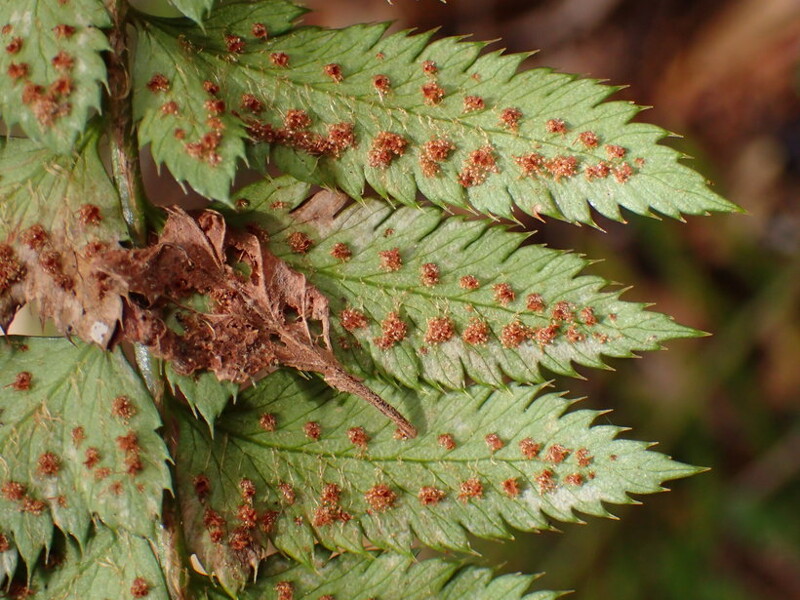Hosted by the University of Washington Herbarium, Burke Museum
Publication: Nat. Pflanzenfam. 1(4): 191. 1899.
Origin: Native
Herbarium search: CPNWH
Notes: FNA2: "Polystichum californicum is an allopolyploid, the evolutionary roots of which include P . dudleyi as the 2-pinnate ancestor. Morphologic and ecological data indicate P . imbricans is ancestor to the northern forms and P . munitum is ancestor to southern forms, suggesting P . californicum is an amalgam of interfertile tetraploids with polyphyletic origins (D. H. Wagner 1979). Cytological analysis corroborates this (A. D. Callan 1972; W. H. Wagner Jr. 1973), but chloroplast DNA studies have detected only the involvement of P . imbricans in the ancestry of P . californicum (P. S. Soltis et al. 1991).
The more xeric, rock-inhabiting members of the complex (showing the parental influence of P . imbricans ) occupy the northern half of the range whereas plants of more mesic habitats are found to the south. Hybrids with both P . dudleyi and P . munitum are found frequently, because these three species are often sympatric (W. H. Wagner 1973). The hybrid with P . dudleyi (a triploid) will key to that species. The hybrid with P . munitum resembles a less-incised form of P . californicum with aborted sporangia. Polystichum californicum × imbricans has been found only once, in Oregon (A. D. Callan 1972). Another hybrid that will key here, based on its overall appearance, is P . munitum × scopulinum . It lacks filiform microscales and also has malformed sporangia. Such a specimen was the basis of the report of Polystichum californicum in eastern Washington (C. L. Hitchcock et al. 1955--1969, vol. 1). The sterile diploid hybrid between P . dudleyi and P . munitum is indistinguishable from P . californicum except for aborted sporangia and chromosome number (W. H. Wagner Jr. 1973)."
Last updated 8/1/2023 by David Giblin.

